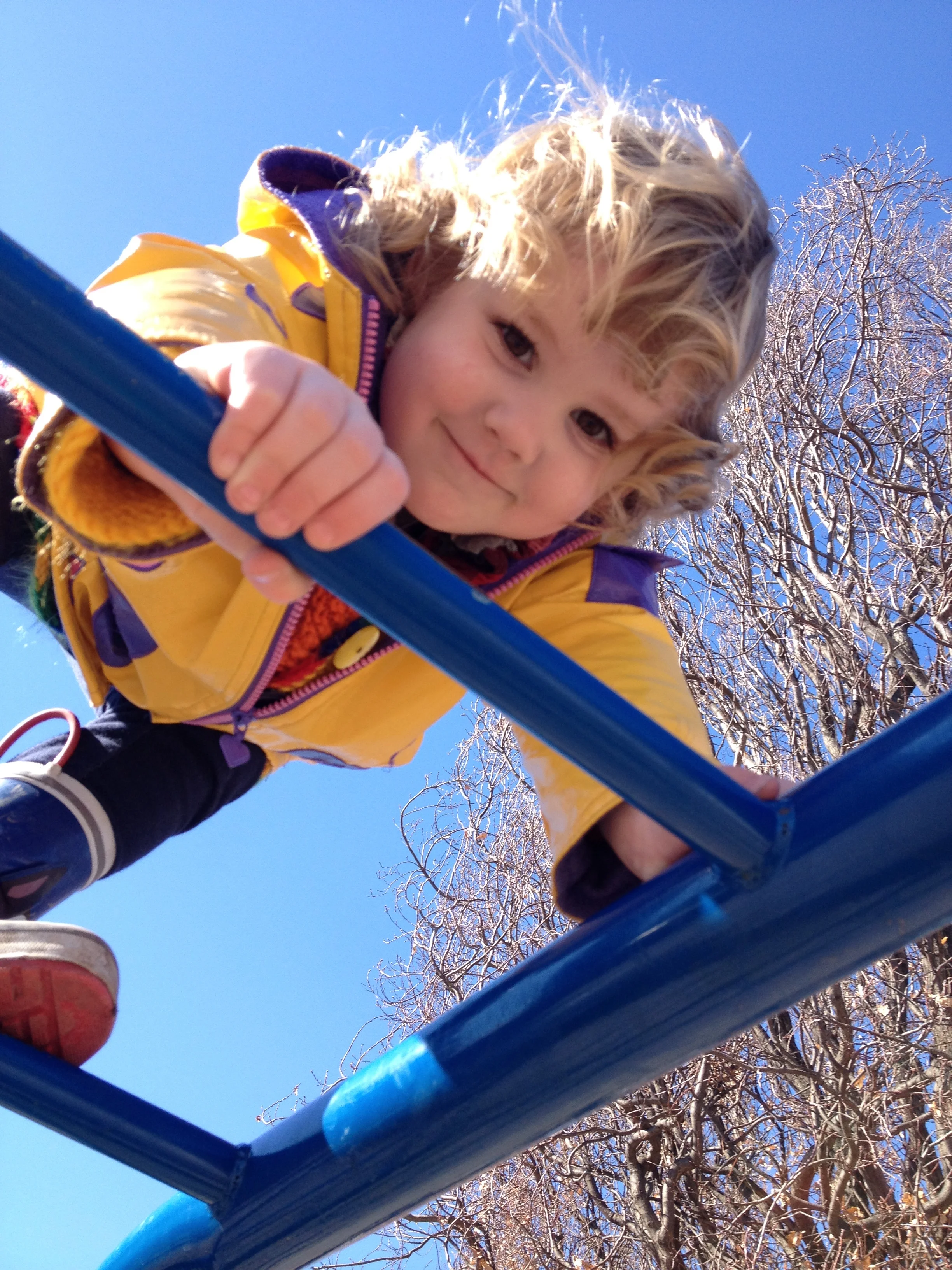I heard my co-teacher coaching a child who had climbed up and onto a tree stump, “If you were able to get up there on your own, you know how to get down.” She stood witness, and verbal coach as the child navigated her own descent. When the child made it back to the ground her face glowed with pride. My co-teacher said, “You got down all by yourself. I can see on your face that you feel pretty good about that.”
Many of us are about to spend a great deal of time at playgrounds, on hikes, at parks, outdoors. Our children are going to push their own limits, climbing, jumping, running, squeezing into spaces that are small and fun. I want to share with you my one of my mottos to keep the children in my care and my own children safe. “If you can get up, you can get down.”
What does this look like? When I’m at a park you will see me on a bench with a book, or with a friend, and a watchful eye. Even when my children were little I sat away and let them experience the park and their own limitations. I know that my children will take risks. I also know that my children and MOST children understand their own limits. By giving them space to reach their limits the children learn about their own capabilities and also learn to rely on themselves, not me.
Sometimes, when I am at a playground, I’ll watch an adult help a child climb a climber, or navigate some parallel bars - helping the child get up higher or navigate equipment that the child can’t possibly do on their own. This not only gives a false sense to a child of their capabilities but it also makes them reliant on an adult to help them down. A hovering adult doesn’t keep a child safe, in fact, it inhibits a child’s experience and creates a false sense of ability.
My daughter is a climber. One day she scaled a swing set at a playground all the way to the top. About 15 feet off the ground. And she got stuck. “Mom, I can’t get down.” I reminded her that since she got up she could get down. I could see in her face her panic and I told her to breathe and take a moment. I stood under her and used my voice to talk her down the swing set. There was no way I could go up and save her (I am not a climber). She could only save herself. When we respect a child’s capabilities as a tiny person, as they grow they understand themselves as capable. We can witness their work, but we can’t do the work for them.
I encourage you this summer, and always, to give your child the opportunity to risk. If you have a baby, let them meet a milestone without you physically helping them. Resist the urge to prop them or hold them up to walk, they will get there without your help. When you are out at parks and playgrounds, trust that your child will meet their limits and trust their capabilities. Be watchfully negligent. Be witness to their self-testing and available to talk them out when they get stuck, but don’t rescue them. We are building resilient, capable, independent humans and we have to do that by allowing them to flex their own abilities, not rely on ours.
